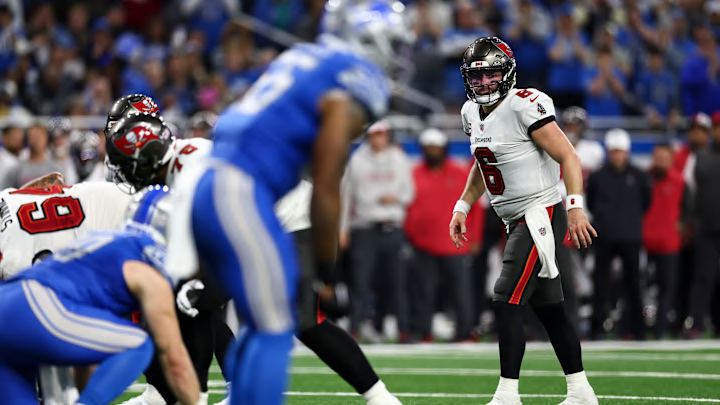As the dust settles on the Tampa Bay Buccaneers season, decisions that were made in the NFC Divisional Round loss are being dissected by more and more experts.
Bucs fans already know how they feel, as it's a mix of joy and frustration over having made it as far as the team did but still falling short with questionable calls. Nothing looms larger than the discourse over the decision by Todd Bowles not to call his final timeout with a chance to get the ball back, but that one has overshadowed another controversial call he made just a few plays earlier.
Tampa Bay scored with 4:37 left in the game, cutting Detroit's lead to just eight points. Rather than kick an extra point, Bowles opted to go for two. The conversion failed, possibly due to Mike Evans not selling DPI hard enough, which is coloring everyone's perspective on the call.
It was easy to troll Bowles for the call, but not everyone thinks it's such a ridiculous decision to make in that spot.
Mina Kimes explains why the Bucs going for two against the Lions was the right decision
One thing Bucs fans have gotten on Bowles all year for is a perceived lack of aggression. The offense, which was called by Dave Canales, tended to be conservative and rarely did we see the Bucs do things like attempting a fourth down conversion or trying to chase points before halftime.
That's why it was actually refreshing to see Bowles push his chips to the center of the table, and ESPN's Mina Kimes agrees that the math justified the gamble.
"This one is pretty simple math. Essentially, if you're down eight you're going to have to score another touchdown which means you have two opportunities to go for two or kick the extra point. The odds of converting one of them are better than not, and if you convert the first time you can win in regulation," Kimes explained.
She also rightly points out that if fans want to be mad about something, be mad about the low percentage play -- a goal line fade -- the Bucs rolled with.
Going for 2 down 8 pic.twitter.com/UWqENYiL5Q
— Mina Kimes (@minakimes) January 23, 2024
Not converting is what changes everything about how this call is being viewed. Had Evans caught it -- or drawn DPI to give the Bucs another shot -- we might be sitting here talking about how Bowles beat Dan Campbell at his own aggressive game.
That didn't happen, but it doesn't make it a bad call. Tampa Bay still got the ball back with a chance to score and tie the game, and had the conversion been successful the Bucs would have been driving to win the game.
Plenty of things went sideways on the Bucs on Sunday, but calling out Bowles for finally being aggressive -- and doing so in a smart way - is not one of them.
